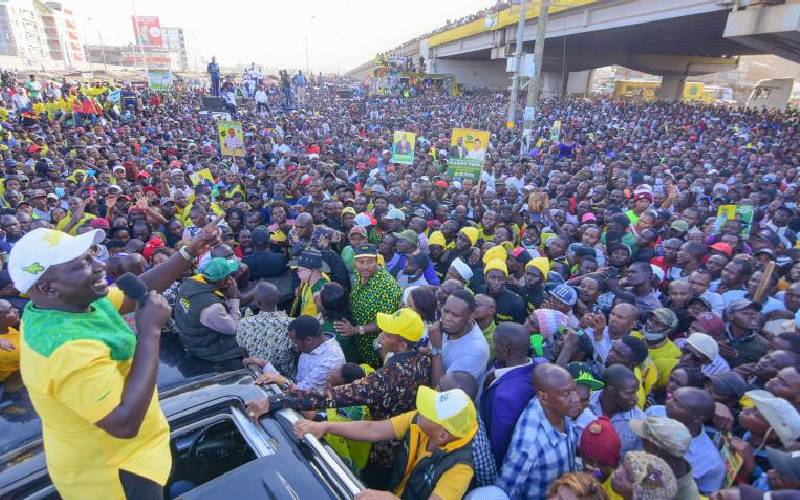×
The Standard e-Paper
Join Thousands Daily

Deputy President William Ruto addressing supporters along Thika Road, Kiambu County. March 13, 2022. [Jonah Mwangi/DPPS]
For a moment, I thought this year's elections offered us a chance to break away from what we were used to; a politics that generates so much heat and little light; a politics where politicians and the voters come together to find solutions for the common problems.